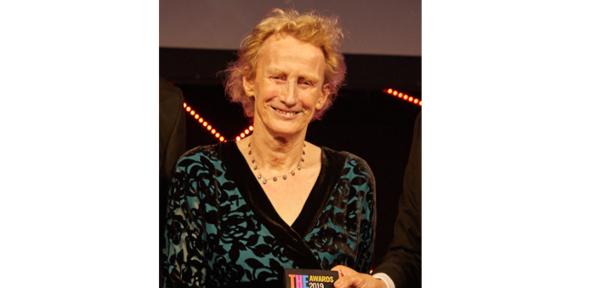
Award recognises enduring and pioneering work on gender equality
On Thursday 28 November at the Times Higher Education Awards in London, Professor Dame Athene Donald, physicist and Master of Churchill College, was awarded the Times Higher Education Lifetime Achievement Award in recognition of her enduring and pioneering work to promote gender equality both at Cambridge and in wider academia.
Professor Donald received both her first and second degrees at Cambridge and returned here after four years' postdoctoral experience in the USA. She became a Professor in 1998 and was elected a Fellow of the Royal Society in 1999. Among her many roles at Cambridge and beyond, she was University Gender Equality Champion between 2010 and 2014. She continues to campaign and advocate for women in higher education and research, and is currently a member of the steering group reviewing the Athena SWAN Charter.
Professor Donald said: "I am deeply honoured to receive this award. I feel it is a recognition for everyone in the much larger community who do great work towards achieving equality. But there is much still to be done to level the playing field for all and, in my speech, I called on all the guests to join me in championing a better workplace."
Eilis Ferran, Pro-Vice-Chancellor for Institutional and International Relations, said: "Athene has long been an important voice in pushing for gender equality, and in helping women and girls achieve their potential in Cambridge, in the sciences, and in wider academia. She continues to drive forward gender related initiatives at Cambridge and voices such as hers help us to promote the progression of women at Cambridge. We continue to work on new and important initiatives to ensure that tangible progress for gender equality remains at the top of the agenda."
Initiatives at Cambridge include a new Inclusive Leadership Programme for senior research leaders and professional service leaders, which launched in Michaelmas Term 2019, with places for over 400 managers over two years. The programme covers implicit gender bias, tools to support career development and work-life balance, and guidance in making robust evidence-based pay decisions underpinned by data and benchmarking.
